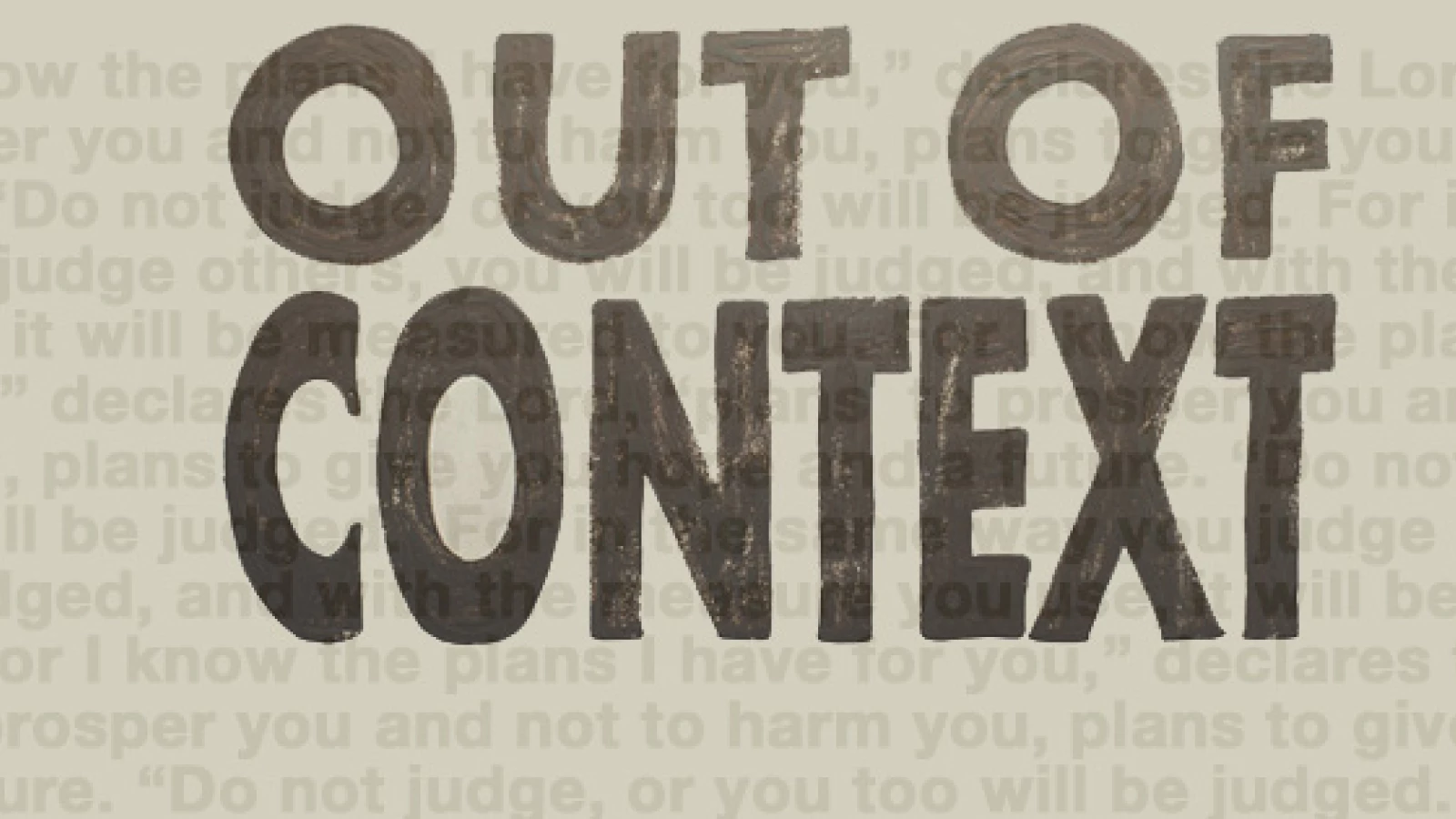We kicked off a three-week series called Out Of Context on Sunday, November 16. This series looks at the importance of reading and studying scripture in context, as well as a couple often misinterpreted scriptures.
Here is some advice of understanding and studying scripture!
Resources for Understanding
- Easy to read translation of the Bible – not a paraphrase but a translation. I like this observation by Woodrow Kroll, “Make sure you are looking for God first in His Word, not in someone else’s commentary. Read the Bible for yourself. Then ask the Holy Spirit to guide you into truth.”
- Concordance – for looking up words in the Bible.
- A Bible dictionary – shekel, denarius, talent, omer, ephah, stadia, or cubit. Or what about the urim and thumim carried by the High Priest? For that matter, what’s a High Priest?
- A Bible Handbook – a quick and handy resource for background information, historical data, archeological discoveries and brief overviews of Bible books. Halley’s Bible Handbook for example. Bible maps can also be helpful.
- Study Bible or Commentary – more in depth explanations
- Life Group – being with others when we study can bring good accountability.
Be careful with the internet – it is a great resource but also a dangerous one…
Guidelines for Understanding
- Personal Context – to whom was this passage written (Jew or Gentile) – it is important to understand it as the first readers would have understood it; by whom was it written?
- Historical Context – what was going on when the passage was written? Was it a time of war or peace, was it written by a king or prophet, did it have a local or global impact. Did you know that …
- Buddha, Confucius, and the prophet Daniel all lived at the same time?
- While the Sheng Dynasty was flourishing in China, Moses was leading the people out of Egypt during the Exodus?
- The first recorded Olympic Games in Greece were held at the time of Jonah?
- The Greek historian Homer lived during the time of Isaiah, Amos, and Micah?
- Mt. Vesuvius erupted and buried Pompeii during the Apostle John’s lifetime?
- Cultural Context – what was the culture of the day? How did this society interact? Canaanite culture was drastically different from Jewish culture; the Kingdom of Rome was certainly different from the Kingdom of God? How did they dress, what was their style of worship, what kind of a governing authority ruled over the people?
- Grammatical Context – Verb tense makes a difference. Understanding different words – they Greeks had four words for love; we have one. Three of those four appear in the Bible but in English they are translated love. And what about apparent contradictions? There is usually a good answer if you’ll take the time to explore. For instance, the Jewish writers used Hebrew time, not Roman. The 24 hour period began at 6:00 p.m. That’s why in Genesis 1, we read of creation, “There was an evening and a morning, the first day.” Morning would have begun at 6:00 a.m. unlike Roman time that began at midnight.
Use these ideas to help you study and understand your Bible in Context!
